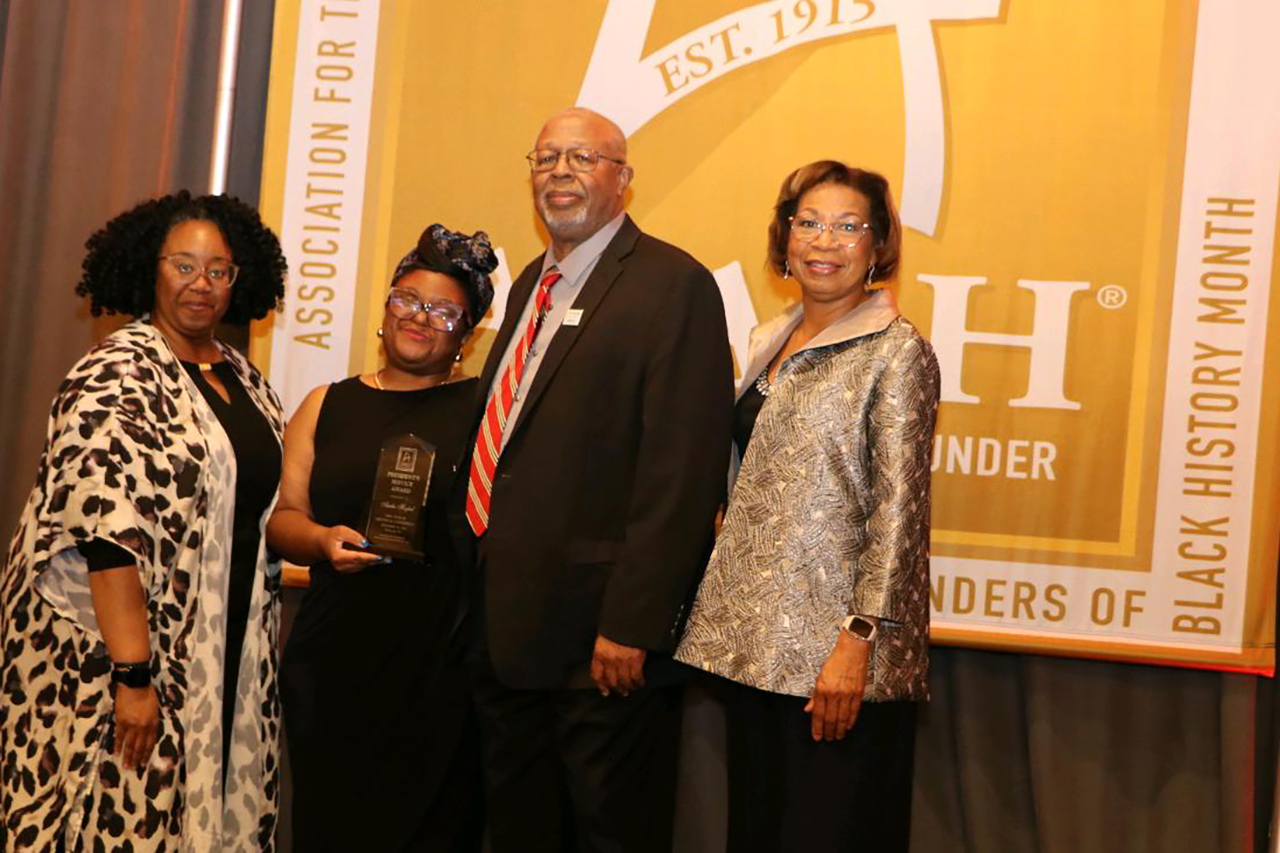
SC-WGS SUMMER INSTITUTE
INAUGURAL “FEMINIST CAMP” IN SOUTH CAROLINA CREATES COMMUNITY
REFLECTIONS BY DR. CAROLINE GUTHRIE (she/her) AND STUDENT ATTENDEE, ARIN KAPLAN (they/them)

Caroline Guthrie presents Film and Representation at the SC-WGS Institute on May 22, 2024. Photo credit: Arin Kaplan
In collaboration with universities across the state, the inaugural South Carolina Women’s and Gender Studies Undergraduate Summer Institute was held at the University of South Carolina (Columbia) from May 19 to 23, 2024. Students focused on thematic streams of art and media, community-centered research, and health. They also got the opportunity to connect with department founders, local activists, and community organizations. The institute was designed for personal and professional enrichment.
What struck me most during my time at the SC-WGS Institute was how successful it was in creating an environment that lived up to the collaborative goals of many feminist teaching practices. When my Introduction to Women’s and Gender Studies class covers feminist praxis, we put a great deal of emphasis on the fact that a truly intersectional praxis doesn’t only learn from traditionally prestigious sources. So much of the work of feminist pedagogy is re-centering voices that are too often excluded from “the canon.” However, it is also hard to break out of that traditional top-down framing in a college classroom. After all, the university is one of the traditionally prestigious sources, and students have been trained their whole lives to learn within top-down framing. It can be challenging to try to reframe learning as a community effort.
However, when I arrived at the Institute, that kind of feminist learning environment – where the insights students gained through experience and the training of experts join in meaningful collaboration – had been established, along with an atmosphere of delightful conviviality. The group was incredibly welcoming. It was no surprise that the participants were engaged and fun to teach during my presentation, but students also invited me to join them for dinner (we had a lovely time) and to come with them to get matching tattoos (I declined but appreciated being included). Students brought a similar attitude of friendly curiosity to both learning sessions and socializing, and I really enjoyed being in a community such a vibrant community.
– Dr. Caroline Guthrie, Visiting Assistant Professor, Department of Communication and WGS affiliate faculty





 I was also moved and fascinated while observing the work presented by Sofia Wilkinson, titled “Unveiling the Purity Myth.” Though many believe the contrary, purity culture is something that goes hand in hand with the sexual abuse and exploitation of women and girls. Telling young girls that they must pledge, commonly to their fathers in a ceremonial fashion, to wait to have sexual relations until they are married is not only sexualizing women and girls but also telling us that our bodies are not our own. Sofia approached this problematic concept with a great deal of passion and care.
I was also moved and fascinated while observing the work presented by Sofia Wilkinson, titled “Unveiling the Purity Myth.” Though many believe the contrary, purity culture is something that goes hand in hand with the sexual abuse and exploitation of women and girls. Telling young girls that they must pledge, commonly to their fathers in a ceremonial fashion, to wait to have sexual relations until they are married is not only sexualizing women and girls but also telling us that our bodies are not our own. Sofia approached this problematic concept with a great deal of passion and care.
























































































































































































































